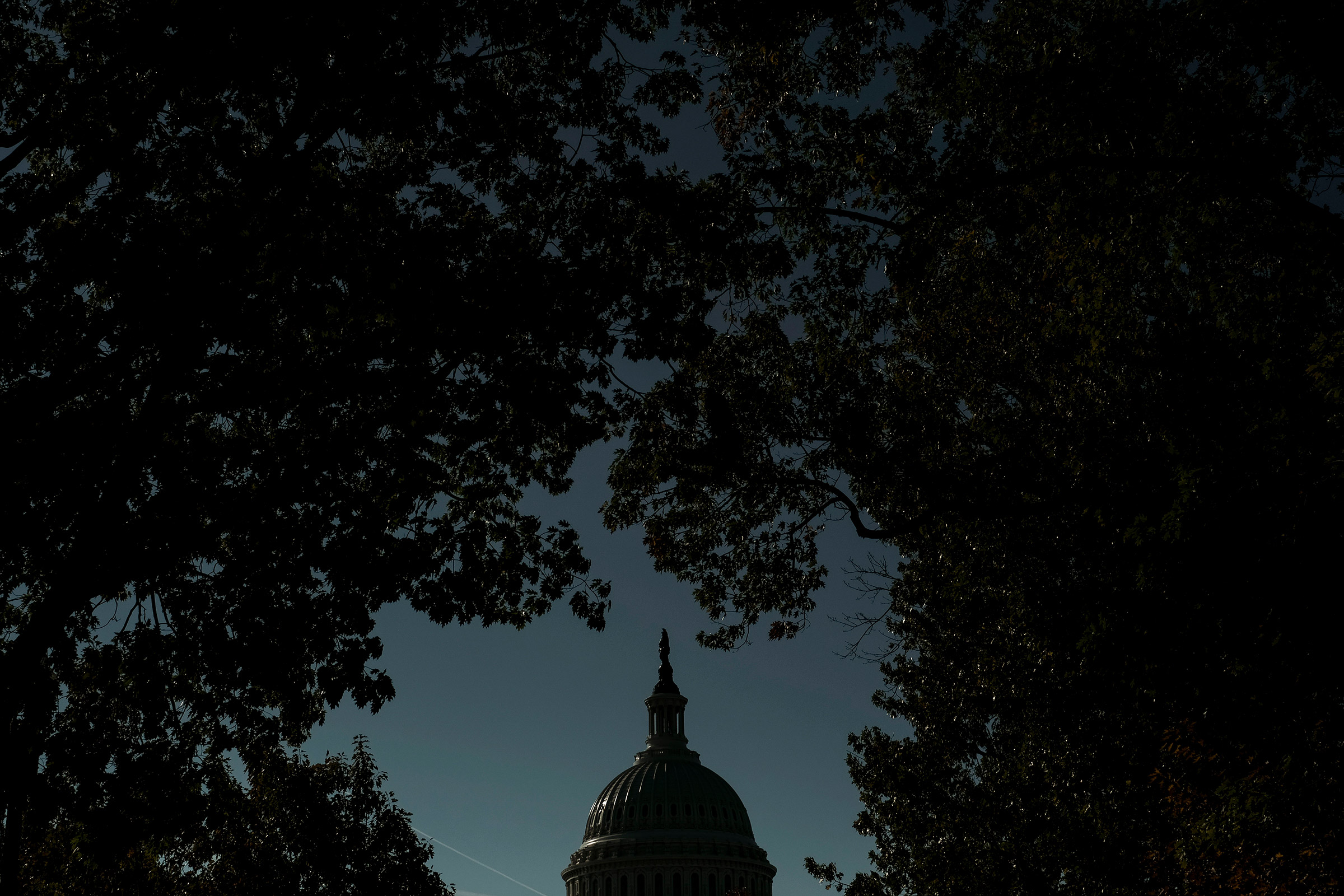
Nearly half a century after Alexis de Tocqueville’s classic Democracy in America, another European observer crossed the Atlantic to assess the state of the American experiment.
James Bryce, the English historian and statesman, arrived in America for an extended tour in the middle of the 1880s, at a time not unlike our own. It was the height of the Gilded Age, and the country was grappling with inequalities of wealth, rising levels of immigration, rapid economic transition and questions about the United States’ role in the world. An astute chronicler–he was a practicing politician, a venerable professor of civil law at Oxford, and would later serve as the British ambassador to the U.S.–Bryce published his reflections in a two-volume work, The American Commonwealth.
Among his insights was a warning of the dangers of a renegade President. To Bryce, the real threat to the Constitution came as much from the people as from the White House. Disaster would strike American democracy, Bryce believed, at the hands of a demagogic President with an enthusiastic public base. “A bold President who knew himself to be supported by a majority in the country, might be tempted to override the law,” Bryce wrote. “He might be a tyrant, not against the masses, but with the masses.”

Now, at the end of the second decade of the 21st century, Bryce’s prophecy has come true. This is not hyperbole. The rise of Donald Trump, and the reflexive resilience of his public support, has produced a singular American moment. The start of public impeachment hearings in Congress on Nov. 13 marks the beginning of a test for the country. As the debate over impeachment and removal unfolds, the nation’s immediate and long-term future depends on whether Americans will be guided by reason rather than passion, fact rather than faith, evidence rather than tribe.
And the facts keep piling up. The U.S. ambassador to the European Union, Gordon Sondland, has now revised his congressional testimony to say that he was involved with a quid pro quo regarding Ukraine: the nation was to publicly announce an investigation into the family of Trump’s political rival Joe Biden, or the U.S. would hold up congressionally appropriated military aid. Other previously closed transcripts from key players are emerging, and even those who have refused to testify have shed light on the Administration’s dealings. Mick Mulvaney, the acting White House chief of staff who has so far refused to answer a congressional subpoena, has already publicly framed perhaps the largest question of the moment when he told reporters that they should “get over” the Administration’s pressuring Ukraine. Mulvaney later tried to walk back these remarks, but the initial comments had all the hallmarks of the Trumpian vision of the world: do what you want, and dare anyone to do anything about it.
Here we are, then, trapped in a time of demagoguery, reflexive partisanship and a Hobbesian world of constant and total political warfare. We know all the factors: the return of the kind of partisan media that shaped us in the 18th and 19th centuries; relentless gerrymandering that has produced few swing congressional districts; the allure of reality-TV programming that has blurred lines between entertainment and governance.
So what to do? A grasp of the past can be orienting. “When the mariner has been tossed for many days in thick weather, and on an unknown sea,” Daniel Webster said, “he naturally avails himself of the first pause in the storm, the earliest glance of the sun, to take his latitude and ascertain how far the elements have driven him from his true course.” The fate of this presidency, of the ensuing elections and of our true course lies in two sets of hands. The first is the House and the Senate, the second the electorate that will determine the outcome of the 2020 campaign. The past and the present tell us that a demagogue can thrive only when a substantial portion of the demos–the people–want him to.
A tragic element of history is that every advance must contend with forces of reaction. In the years after Abraham Lincoln, the America that emancipated its enslaved population endured Reconstruction and a century of institutionalized white supremacy. Under Theodore Roosevelt and Woodrow Wilson, the America that was rapidly industrializing and embracing many progressive reforms was plagued by theories of racial superiority and fears of the “other” that kept us from acting on the implications of the promise of the country. In the age of Franklin Roosevelt and Harry Truman, the America that rescued capitalism, redefined the role of the state to lift up the weakest among us, and defeated fascism fell victim to racial hysteria and interned innocent Americans of Japanese descent. Truman and Dwight Eisenhower played critical roles in building an America of broadening wealth, and there was incremental progress on civil rights, in roughly the same years the country was roiled by McCarthyism and right-wing conspiracy theories. And the age of Barack Obama gave way to the age of the incumbent.
The only way to make sense of this eternal struggle is to understand that it is just that: an eternal struggle. We are now grappling with a new chapter in that struggle, one that includes the salience of the Constitution, the sovereignty of our elections and the possible impeachment of a President. At the Constitutional Convention, George Mason of Virginia asked, “Shall any man be above justice? Above all, shall that man be above it who can commit the most extensive injustice?” The answer was no; no man shall be above justice. What will determine that?
We will–We the People. The people matter, for politicians are far more often mirrors of who we are rather than molders. And we are all on trial. In his speech at American University in June 1963 proposing a ban on nuclear testing, President John F. Kennedy said, “Man can be as big as he wants.”
Or as small. The risk we face often grows out of the anger of crowds–literal and, now, also virtual–of the alienated and the emboldened. The better Presidents, the better citizens, do not cater to such forces; they conquer them with a breadth of vision that speaks to the best parts of our soul.
Divisions of opinion are inherent to democracy. There was never a once-upon-a-time in American life, and there will never be a happily-ever-after. The world doesn’t work that way. Andrew Johnson survived impeachment; Richard Nixon’s support held until the very last moment of Watergate; Joe McCarthy’s red-baiting reign lasted not a season or a single cycle but four long years–and even when he’d fallen into disgrace, 34% of the country still supported him.
The cheering news is that hope is not lost. “The people have often made mistakes,” Truman said, “but given time and the facts, they will make the corrections.” This isn’t a Republican point or a Democratic point. It’s not a red point or a blue point. It’s just a true point, drawn from any fair-minded reading of the American experience. Think about it: we honor liberators, not captors. From Seneca Falls to Fort Sumter; from Omaha Beach to the Edmund Pettus Bridge; from Soviet-occupied Berlin to Stonewall, Americans have sought to perfect our union and to nudge the world toward an ethos of liberty rather than tyranny.
It’s true, of course, that at times of heightened conflict, those motivated by what they see as extremism on the other side are likely to see politics not as a mediation of difference but as existential warfare in which no quarter can be given. The country has worked best, however, when we’ve resisted such impulses. Eleanor Roosevelt offered a prescription to guard against tribal self-certitude. “It is not only important but mentally invigorating to discuss political matters with people whose opinions differ radically from one’s own,” she wrote. “For the same reason, I believe it is a sound idea to attend not only the meetings of one’s own party but of the opposition. Find out what people are saying, what they are thinking, what they believe. This is an invaluable check on one’s own ideas … If we are to cope intelligently with a changing world, we must be flexible and willing to relinquish opinions that no longer have any bearing on existing conditions.” If Mrs. Roosevelt were writing today, she might put it this way: don’t let any single cable network or Twitter feed tell you what to think.
Wisdom generally comes from a free exchange of ideas and an acknowledgment that your team might be wrong and the other team might be right. To reflexively resist one side or the other without weighing the merits of a given issue is all too common–and all too regrettable. To elect to be impervious to argument is to pre-emptively surrender the capacity of reason to guide us in our public lives. Of course, it may be that you believe, after consideration, that the other side is wrong–but at least take a minute to make sure.
History may well turn on what happens in that minute. In that minute we might truly consider what this witness or that transcript is truly telling us. In that minute we might truly begin to see events in a different light. In that minute we might truly rethink our predispositions and, with Mrs. Roosevelt, arrive at a conclusion that requires us to relinquish an opinion we believed unassailable. That’s one of the reasons “hearings” are called “hearings.” We’d do well to remember that in the coming weeks and months.
In The American Commonwealth, James Bryce included a chapter titled “Why Great Men Are Not Chosen Presidents.” He was writing in an especially unremarkable era for the American presidency, the age of Hayes, Garfield, Arthur, Cleveland and Harrison. The future proved Bryce wrong here; the ensuing century gave us both Roosevelts, Truman, Eisenhower, Reagan. “We the People” rose to the occasion and made good and important decisions. Now we face the test anew.
Meacham, a Pulitzer Prize–winning historian, is the author of The Soul of America: The Battle for Our Better Angels
More Must-Reads from TIME
- Cybersecurity Experts Are Sounding the Alarm on DOGE
- Meet the 2025 Women of the Year
- The Harsh Truth About Disability Inclusion
- Why Do More Young Adults Have Cancer?
- Colman Domingo Leads With Radical Love
- How to Get Better at Doing Things Alone
- Michelle Zauner Stares Down the Darkness
Contact us at letters@time.com